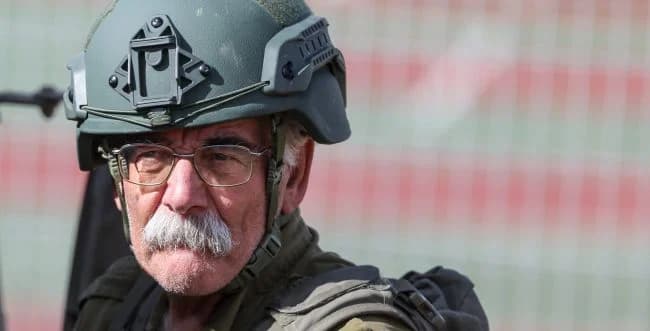Beyond the stones
PROFILE: Who was Ze'ev Erlich?
"A Bible in one pocket, a map in another" – these words from Heritage Minister Amichai Eliyahu perfectly captured Ze'ev Erlich, the 71-year-old scholar who died pursuing his lifelong passion for biblical archaeology in southern Lebanon.

Ze'ev Erlich was a prominent Israeli archaeologist, historian, and beloved tour guide, who fell in Lebanon yesterday. He was particularly well-known in the West Bank settler community.
He transformed Israeli archaeology by pioneering a unique, hands-on approach at the Ofra Field School.
His methodology was distinctively practical. While others might study from afar, Erlich believed in walking every path and examining every stone. This approach led him to significant discoveries, including his recent identification of Tel Balata as the probable location of biblical ceremonies. Just weeks before his death, he was exploring ancient catacombs in Nablus, sharing memories of childhood visits "before the existence of walls and fences."
Through his weekly columns in Makor Rishon's Shabbat supplement, he made complex archaeological findings accessible to the public. But it was his unique collaboration with the IDF that set him apart. For years, he volunteered his expertise to help soldiers understand the strategic significance of ancient sites, bridging the gap between historical research and military necessity.
"He had a story for every rock, history for every path," noted Heritage Minister Amichai Eliyahu. This deep understanding made him invaluable to both academic and military circles. His edited book series on Judea and Samaria became cornerstone texts for understanding the region's terrain and history.
Even in his seventies, with his characteristic Bible in one pocket and map in another, he maintained the enthusiasm of a young explorer, turning Israel's landscape into a living classroom for thousands of students.
"Each stone tells a story, if you know how to listen" – this philosophy guided him through decades of groundbreaking archaeological work until his tragic death in southern Lebanon, where his passion for ancient sites ultimately led to his final expedition.
Yesterday (November 20) while examining an ancient fortress in Lebanon, Erlich and 20-year-old Sgt. Gur Kehati were killed in a Hezbollah ambush.
Erlich's story ended as he lived - pursuing knowledge in the field, adding his own chapter to the history of the lands he spent his life studying. As the Yesha Council noted, he was truly "a living legend" whose impact on Israeli archaeology and historical understanding will continue to influence generations of researchers to come.
His legacy lives on through the thousands of students he trained at the Ofra Field School, his extensive publications, and his innovative approach to understanding ancient landscapes. As Yaron Rosenthal, Head of Gush Etzion Council, reflected, "Few scholars possessed his level of passion or demonstrated such complete devotion to the land."
May his memory be a blessing.